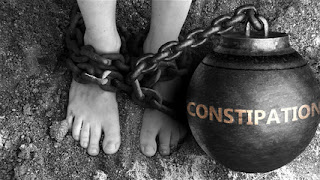Avoiding Food Illness This Summer
Each year 48 million people suffer illness from contaminated foods.
 Choosing organic produce can also add at least some level of quality, as organic crops cannot be grown with synthetic pesticides or sewage sludge-based fertilizers, nor can they be irradiated.
Choosing organic produce can also add at least some level of quality, as organic crops cannot be grown with synthetic pesticides or sewage sludge-based fertilizers, nor can they be irradiated.
Although food-borne illness are often associated with meat products, some of the largest outbreaks have actually been linked to contaminated produce. Romaine lettuce, spinach, and tomatoes have all had their share of contamination, causing millions to become ill and in very rare cases, to die.
Contamination can occur at any phase of growth, production and packaging. Salmonella and E. Coli are the most dangerous offenders.
Salmonella poisoning is typically linked to eating raw or under cooked meats, poultry or egg products. It may take up to two days to have symptoms which are most often diarrhea, nausea, abdominal pain, aches and pains which are all made worse by dehydration. Symptoms may last 4-7 days but most people will tell you they are “not quite right” for months after.
Escherichia coli (E. coli) bacteria normally live in the intestines of healthy people and animals. Most varieties of E. coli are harmless or cause relatively brief diarrhea. Some may suffer with similar symptoms to Salmonella and may even have bloody diarrhea.
One of the most important points I would like to make is that; you are either an open door or easy target for these invaders, or you are not. If everyone who has been exposed to contaminated foods were to get sick we would all be very experienced victims and most likely more than once.
Your intestinal tract contains approximately 2 pounds of bacteria. If the majority of the bacterial in your colon is of the healthy type, you may not be as susceptible to food contamination as the person with an unhealthy environment from many rounds of antibiotics and poor diet. Taking probiotics on a regular basis would prevent most cases of food poisonings or travelers diarrhea.
Should you stop eating produce to avoid contamination? Absolutely not, but you should consider protecting yourself in a variety of ways. The following tips may help to reduce your risk of food contamination.
• Wash your hands before and after food preparation
• Cut away bruised or damaged areas of produce
• Gently rub produce while washing under running water
• Wash before you peel it
• Use a brush to scrub firm produce
• Supplementing with probiotics (not yogurt)
• Dry with a clean cloth
• Remove the outer leaves of lettuce and cabbage
• Use chemical free washes that are available in many health food stores
Don’t fall for irradiated foods as being safer. There are years and years of studies that show that irradiated foods increase your risk of many types of cancers and a host of other complications. What many people do not realize is that many of your spices are irradiated.
The foundational solution to this problem lies in preventing it at the source — on the farm, during processing and shipping, and so on. There simply shouldn’t be E. coli in your lettuce or Salmonella in your tomatoes.
So why is there?
Our “global food system,” which encourages farming on a massive scale, poses steep problems for food safety. Not only can one batch of contaminated spinach or peppers easily sicken people across an entire country, but it is also very difficult to trace a contaminated food back to its source … and even harder to then pinpoint the source of the contamination.
As you can see, the more steps your food goes through before it reaches your plate, the greater your chances of contamination becomes. If you are able to get your food directly from the field or after harvest, such as directly from a farmer or farmer’s market, you knock out five potential operations that could expose your food to contamination.
There is, of course, also potential for contamination directly in the farm field.
 Choosing organic produce can also add at least some level of quality, as organic crops cannot be grown with synthetic pesticides or sewage sludge-based fertilizers, nor can they be irradiated.
Choosing organic produce can also add at least some level of quality, as organic crops cannot be grown with synthetic pesticides or sewage sludge-based fertilizers, nor can they be irradiated.
I suggest you google “sustainable agriculture” to find resources in your area. Use words like Western New York to optimize your search. Your goal is to find farmer’s markets, family farms and other sources of safe, high-quality food.
The closer you are to the source of your food, the fewer hands it has to pass through and the less time it will sit in storage — so the better, and likely safer, it will be for you and your family.



Comments
Post a Comment